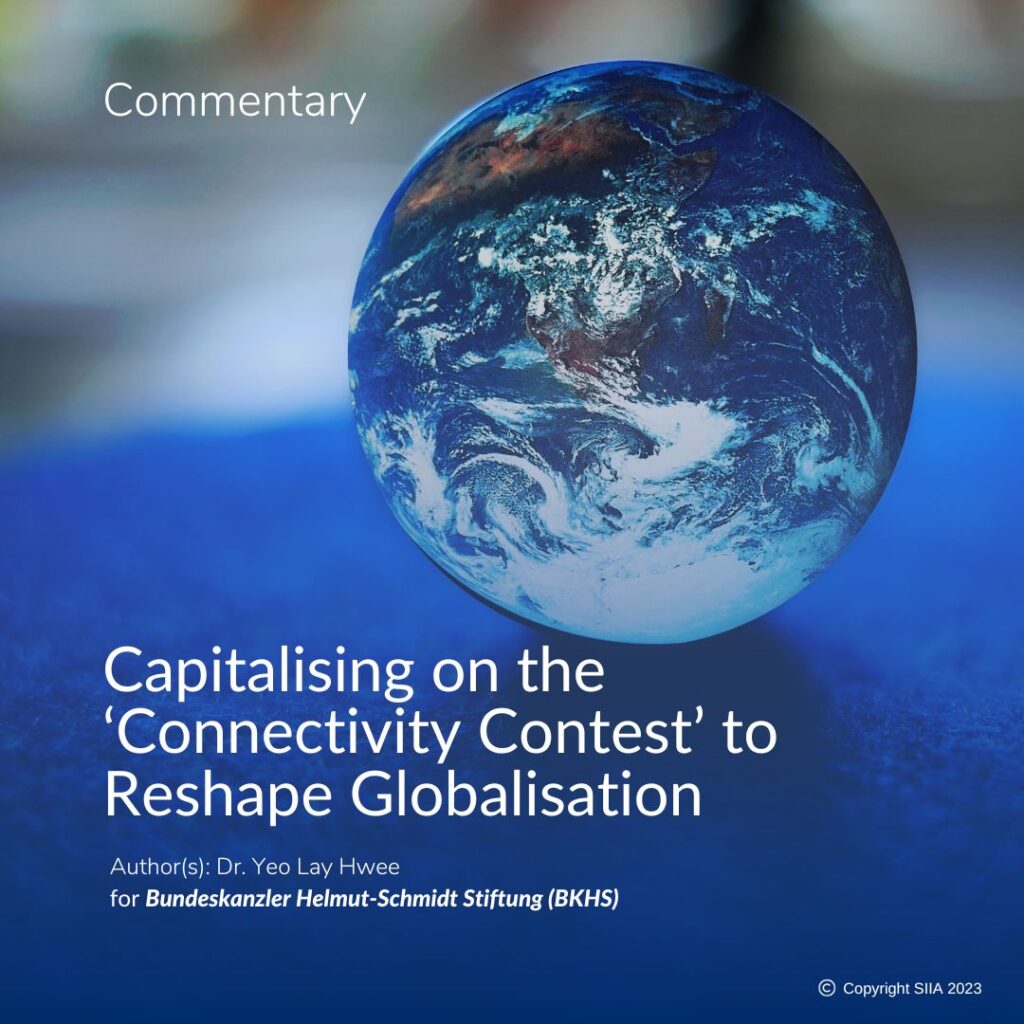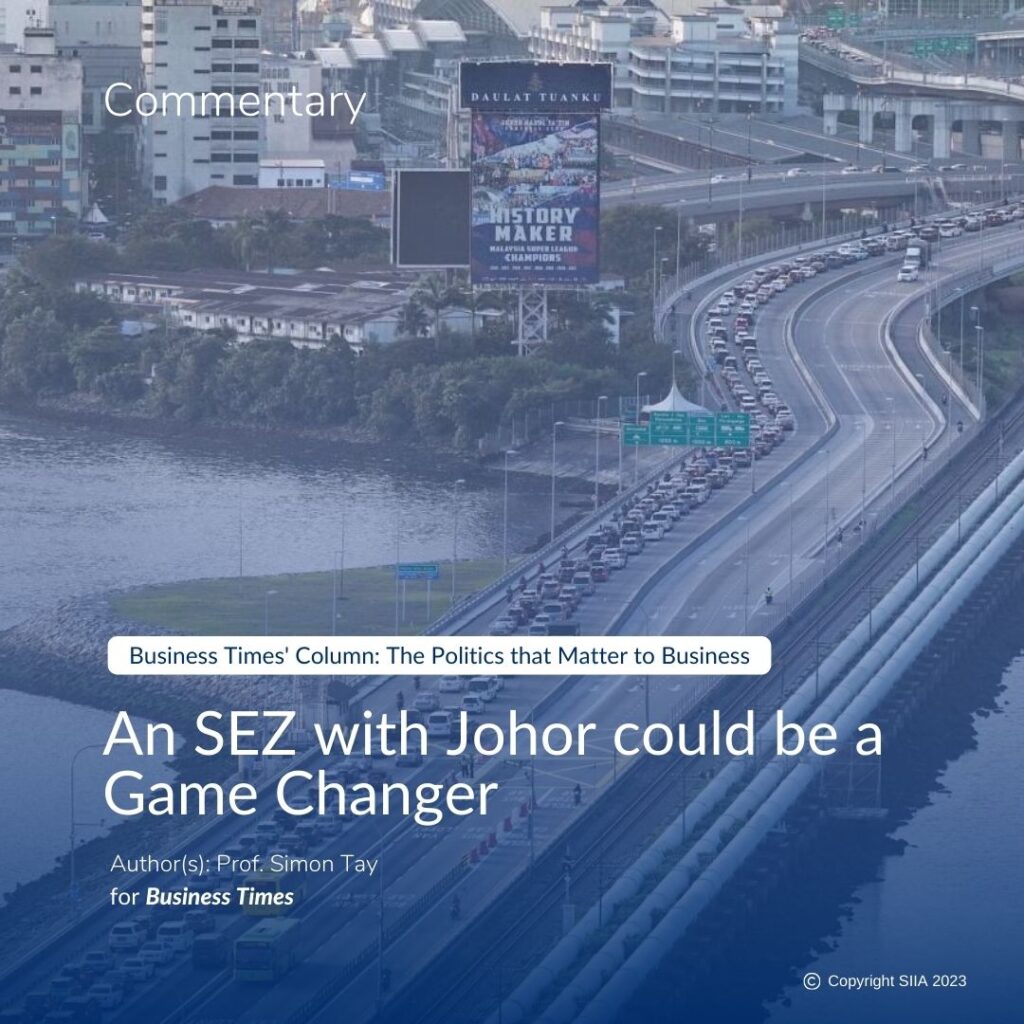The global nuclear fraternity meets biennially at the Nuclear Security Summit (NSS), taking place this year at The Hague. A brainchild of United States President Barack Obama, the NSS kicked off in 2010 and is a global platform aimed at preventing nuclear terrorism around the world.
It gathers leaders from nuclear nations, industry experts and academics with the aim of addressing key threats facing the nuclear sector and the risk of nuclear material being used in malicious acts of terror.
Singapore, despite not having any of its own nuclear facilities, has been involved in the NSS process since the start, attending the first two summits in Washington and Seoul. Prime Minister Lee Hsien Loong is attending the third edition this year, which officially begins today.
Some may ask why Singapore, as a non-nuclear state, is participating in the global conversation on nuclear security.
There are key reasons for this, especially if one considers the key thrust of the summit and other parallel events: Enhancing a worldwide nuclear security culture.
NUCLEAR SECURITY CULTURE
Experts point to two major global events that highlight the imperative to develop a permeating international security culture for the nuclear sector.
The tragedy of the 9/11 terror attacks underlined the impact non-state actors such as terrorists could have, even without nuclear weapons at their disposal.
And the Fukushima Dai-ichi disaster showed the devastating effects of nuclear material on hundreds of thousands of people, even when the cause was a natural phenomenon and not terrorists.
Previously, the global nuclear community’s emphasis has been on technical safeguards and broader safety concerns. But the events of 9/11 and Fukushima have raised the spectre of terrorists armed with nuclear weapons and encouraged a focus on developing a sustainable nuclear security culture.
The International Atomic Energy Agency (IAEA) — the world’s central intergovernmental forum for cooperation in the nuclear field — has identified three key threats to nuclear security.
They are theft or the unauthorised removal of nuclear materials; the sabotage of nuclear facilities or activities that include the transport supply chain of such materials; and a public event involving radiological dispersal devices which includes acts of terrorism.
The IAEA and other organisations involved in nuclear security have encouraged the broadening of awareness about threats and challenges to nuclear security among policymakers and the general public through education and other outreach activities.
Other elements central to a strong nuclear security culture include adequate laws and strategic trade controls; as well as integrated national and international cooperation to improve the physical protection of facilities and materials, strengthening of borders, the disruption of criminal networks and activities such as money laundering.
WHY SINGAPORE SHOULD BE INVOLVED
The Fukushima disaster has slowed plans by some South-east Asian countries to adopt nuclear power. Thailand, Malaysia and Indonesia appear to be reassessing their initial plans. But they also have not ruled out nuclear energy entirely.
At the same time, Vietnam has made it clear that it would proceed with the construction of nuclear power plants by 2020. It has struck deals with the US, Russia and Japan to secure nuclear fuel and technology.
Once Vietnam begins building or operating its nuclear power plants, it is possible other South-east Asian nations could be motivated to revisit their own plans.
The Malaysian authorities have expressed reservations about committing to a nuclear programme, but industry watchers say Malaysia could potentially build two nuclear reactors, including one possibly in Johor.
Last month, Malaysia hosted an international tabletop planning exercise called Tiger Reef, which focused on inter-agency coordination and training for national response frameworks addressing nuclear and radiological events.
It is clear that several South-east Asian states are serious about nuclear development. Singapore itself has not ruled out nuclear facilities in the future, although the Government had said in 2012 that current technologies make the nuclear option unsuitable for Singapore after a pre-feasibility study done by the Ministry of Trade and Industry (MTI).
WHAT SINGAPORE CAN DO
Experts at the 2014 Nuclear Knowledge Summit, being held in Amsterdam on the sidelines of the NSS, say the global nuclear dialogue is not restricted to countries that already have nuclear facilities.
There remains much that Singapore can do to remain involved and relevant to the nuclear community, something which the Government recognises as essential as the region continues progressing towards developing nuclear capabilities.
The MTI’s pre-feasibility study on nuclear energy was done with the assistance of two consultant firms from the US and three independent international experts.
To develop the human resources, capabilities and expertise needed to contribute effectively to the nuclear dialogue in the region and beyond, Singapore could set up a research institute focusing on nuclear safety and security.
This institute would be able to tap into fora such as the IAEA’s International Nuclear Security Education Network, which aims to develop and promote excellence in nuclear security education. Members of the network jointly develop teaching material and curriculum, carry out joint research and development projects and conduct student exchanges.
Observers say the institute could also act as a focal point for the various skills needed for nuclear security — many of which are already in existence — including cybersecurity, satellite monitoring and radiation detection capabilities, and direct these specifically towards enhancing nuclear security.
Industry watchers have long emphasised that threats to nuclear security are global in nature and require a global response.
Singapore, through continued participation in international dialogues such as the NSS and by ensuring that the infrastructure is in place to develop its own expertise in the nuclear sector, will be able to play its part in that global response.
ABOUT THE AUTHOR
Nicholas Fang is Associate Editor at Channel NewsAsia. He attended the Nuclear Knowledge Summit 2014 in Amsterdam on the sidelines of this year’s Nuclear Security Summit, in his capacity as Executive Director of the Singapore Institute of International Affairs. This commentary was originally published in TODAY on 24 March 2014.




